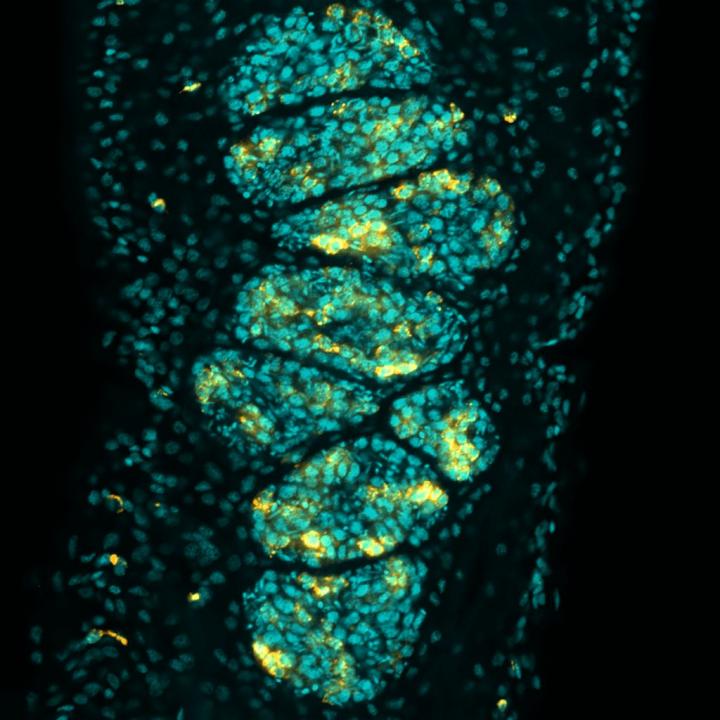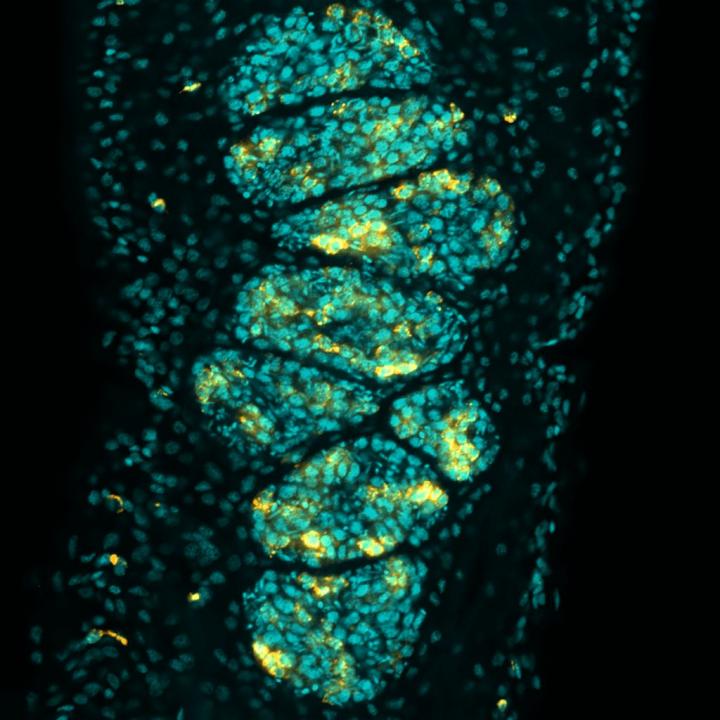
Scientists can interfere with sperm production in the parasitic blood fluke Schistosoma mansoni by blocking expression of the Nuclear Factor Y-B gene (NF-YB). The new study by Harini Iyer and Phillip A. Newmark of the Howard Hughes Medical Institute and University of Illinois and James Collins (now at UT Southwestern) appears on June 15 in PLOS Genetics.
The population of stem cells that develop into sperm, called spermatogonial stem cells (SSCs), must continually renew themselves, while also differentiating into mature sperm. Too much self-renewal can create tumors and defects in differentiation can lead to infertility through malformed sperm. To better understand how SSCs maintain this balance, the scientists investigated the role of the NF-YB gene in stem cell production in the freshwater planarian, Schmidtea mediterranea. Previously, the NF-Y family of transcription factor had been shown to play a role in germ cell development in the planarian. Using RNA interference, the researchers lowered the expression of the gene and showed that it is necessary for SSC proliferation. They repeated the experiment in the planarian’s parasitic cousin, S. mansoni, which is the cause of the neglected tropical disease schistosomiasis. Suppressing NF-YB created the same effect and ultimately reduced SSC numbers in the testes.
“We are excited to see that basic research on planarian germ cell development can also lead to better understanding of the reproductive biology of their parasitic cousins. Ultimately, reproduction enables the continued propagation of these parasites, and the more we know about how they reproduce, the better chance we have of controlling them someday,” says Dr. Newmark. Additionally, the identification of factors involved in SSC maintenance may have other biomedical applications, such as discerning the cause of testicular tumors and improving fertility treatments.
###
In your coverage please use this URL to provide access to the freely available article in PLOS Genetics: http://dx.plos.org/10.1371/journal.pgen.1006109
Citation: Iyer H, Collins JJ III, Newmark PA (2016) NF-YB Regulates Spermatogonial Stem Cell Self-Renewal and Proliferation in the Planarian Schmidtea mediterranea. PLoS Genet 12(6): e1006109. doi:10.1371/journal.pgen.1006109
Image Credit: Harini Iyer and colleagues
Funding: This work was supported by grants from The Eunice Kennedy Shriver National Institute of Child Health and Human Development (http://www.nichd.nih.gov/Pages/index.aspx) (R01 HD043403) and the National Institute of Allergy and Infectious Diseases (http://www.niaid.nih.gov/Pages/default.aspx) (R21 AI099642) to PAN. PAN is an investigator of the Howard Hughes Medical Institute (http://www.hhmi.org/). The funders had no role in study design, data collection and analysis, decision to publish, or preparation of the manuscript.
Competing Interests: The authors have declared that no competing interests exist.
Media Contact
Amy Yau
[email protected]
44-012-234-42823
The post Gene required for sperm production in blood flukes identified appeared first on Scienmag.





